Pope Francis & Climate Change: Don’t Forget the Poor
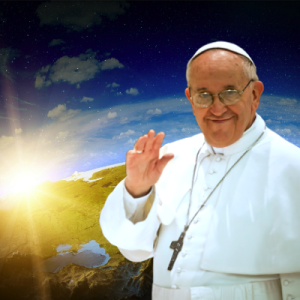 BY CHRIS KERR | January 4, 2014
BY CHRIS KERR | January 4, 2014
Hopefully it is not a secret to Catholics and others interested in the movements of the Catholic Church that Pope Francis will place a significant emphasis on the issue of global climate change this year. For more than a year the Vatican has been hinting that Francis will release a Papal encyclical on climate change in early 2015. He will also tie the issue into a visit to the Philippines this month where he will meet with people still recovering from Typhoon Haiyan, a mega storm that wreaked unprecedented havoc on the Pacific nation.
The media attention on Pope Francis’ climate change focus is beginning to grow, which is exciting. But there is something that worries me.
Too often in today’s polarized media, conversations about the environment and Catholic faith quickly digress to divisive political opinions and extreme perspectives. They fail to recognize the “faith” behind Francis’ engagement in the issue of global climate change. An example reported on by Media Matters, which analyzes a Fox News story on the upcoming encyclical highlights this fact, but it is not just Fox News that is making this mistake. An op-ed entitled “Should we heed the pope over global warming call?” published in many metropolitan newspapers recently, offers two perspectives on climate change but makes the same mistake.
In both cases they address the polarities of the topic while choosing to ignore the most important part of the Pope Francis’ commitment to this issue – the moral imperative of climate change – the impact it will have on the economically poor and marginalized.
This reality is significant and apparent across the globe. In March 2014, PBS’s Front Line reported on the UN’s most recent report on climate change noting that, “warming temperatures, sea-level rise and unpredictable shifts in weather are already cutting into food production and will have long-term impacts on human survival.” A 2009 study of the Global Humanitarian Foundation found that over 90% of those persons most severely affected by climate change were from developing countries that have contributed the least to global carbon emissions.
In the U.S. things are no different. Marginalized populations continue to be the most vulnerable victims of natural disasters like Hurricanes Katrina or Sandy and the impacts of air pollution are also striking. A University of Minnesota study found that people of color are exposed to nearly 40% more polluted air than Caucasian Americans, which is linked to asthma symptoms and heart disease. African American children are twice as likely and Latinos are 30% more likely than Caucasian Americans to be hospitalized for asthma. The study predicts that if people of color breathed in the same amounts of pollution as Caucasian Americans there would be 7,000 fewer deaths from heart disease in the U.S. each year.
Catholic Social Teaching reminds us that every human being is created in the image of God, and therefore is invaluable and worthy of respect as a member of the human family. Caring for creation is a response to this call, where our love for our vulnerable brothers and sisters signifies our love for God.
It’s safe to say that any document written by Pope Francis is going to include a strong emphasis on how the topic relates to the reality of the marginalized. He has called people to a vision of the Church grounded in ideas like a “poor church for the poor” and “love for the poor is at the center of the Gospel.” Any media coverage of Pope Francis’ upcoming encyclical that does not include an emphasis on how the issue affects the economically poor and marginalized will likely not offer the full view of what is to come.
Chris joined the Ignatian Solidarity Network (ISN) as executive director in 2011. He has over fifteen years of experience in social justice advocacy and leadership in Catholic education and ministry. Prior to ISN he served in multiple roles at John Carroll University, including coordinating international immersion experience and social justice education programming as an inaugural co-director of John Carroll’s Arrupe Scholars Program for Social Action. Prior to his time at John Carroll he served as a teacher and administrator at the elementary and secondary levels in Catholic Diocese of Cleveland. Chris speaks regularly at campuses and parishes about social justice education and advocacy, Jesuit mission, and a broad range of social justice issues. He currently serves on the board of directors for Christians for Peace in El Salvador (CRISPAZ). Chris earned a B.A. and M.A. from John Carroll University in University Heights, Ohio. He and his family reside in Shaker Heights, Ohio.

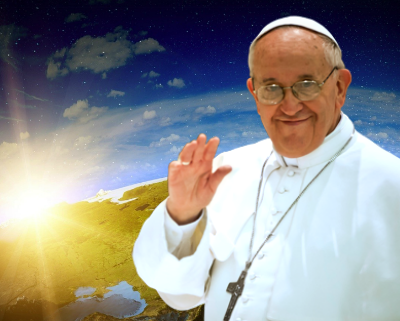

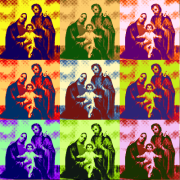
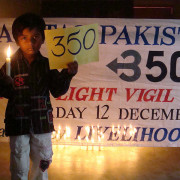
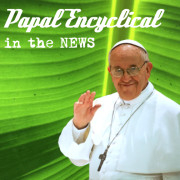
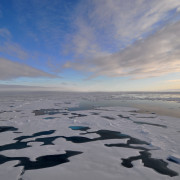
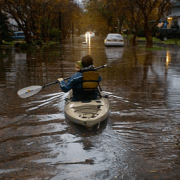



Pope Francis said as much to the people he invited to Rome on October 27, the cartoneros and marginalized. He promised he would reflect their concerns – deforestation, impact of mining etc – in his encyclical.